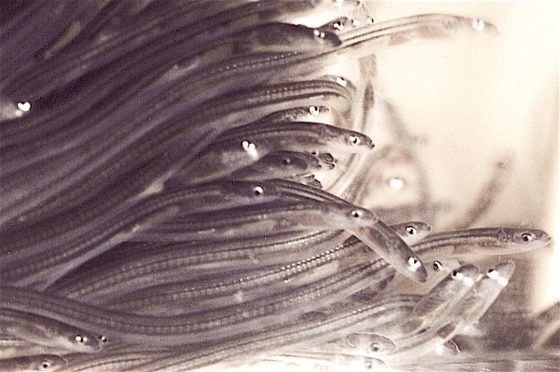
Today, the International Council for the Exploration of the Sea, ICES, published its scientific advice on fishing opportunities for European eel for 2022. It is now aligned with advice for other species in dire straits: zero catch for 2022. The advice also includes a clear call for catches for restocking to stop, as it increases eel mortality without any proven net benefit to eel reproduction.
This nominal change in the wording of the ICES advice, from “keep all anthropogenic impacts as close to zero as possible” to “zero catches in all habitats” is a historical step forward, as it makes clear that from a scientific, precautionary point of view no catches of the critically endangered European eel can be considered sustainable.
It comes years after changes to the objectives of the EU fisheries policy in 2013, and wider developments of EU environmental policy, and emphasizes the need for a review of some of the recovery measures in the EU’s so called eel regulation (EC 1100/2007) adopted in 2007.
– We have called for a complete prohibition of eel fishing for years, in order to protect the species and support its recovery. We therefore particularly welcome the very clear signal from ICES that, when applying the precautionary approach, the zero catch should apply to all catches in all habitats, including glass eels used for restocking and aquaculture, says Niki Sporrong, European eel project manager at FishSec.
The previous wording of the ICES advice had been in place since 2003. It left Member States and the European Commission some wiggle room, and has essentially allowed most EU countries to continue fishing for eel, despite that the European eel has been classified as “Criticially Endangered” by the International Union for the Conservation of Nature, IUCN, and is on the European Red List of Freshwater Fishes.
While the EU and external evaluations of the eel regulation that were published in early 2020 considered the eel regulation still “fit for purpose”, it was abundantly clear that its implementation has been slow and uneven, leaving the eel population no better off even though the steep decline in recruitment seems to have been halted at a very low level – less than 1% in the North Sea index area and around 6 % “elsewhere” in Europe. The Commission[2] staff working document called for better and more adaptive management, and questioned the use of restocking, other than as a short term emergency measure.
– It is time for the EU to halt all fishing for European eel and focus on its recovery, says Niki Sporrong. No more glass eel fishing for restocking in the name of conservation, which often just supports a continued fishery that would otherwise not exist today. Instead, other measures to remove barriers to migration and improve water quality are urgently needed.